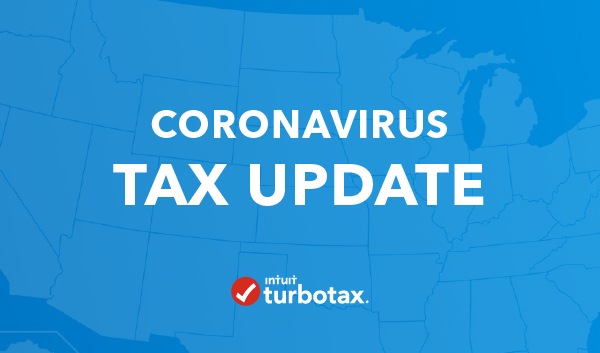[ad_1]
Feeling a bit confused about tax submitting? You’re not alone.
How a lot do you must make to file taxes? Do you must file taxes yearly? When do you begin paying tax? These are widespread questions throughout this time of yr, and we’ve received you lined.
Understanding the minimal earnings to file taxes is essential to demystifying the tax submitting course of. Let’s break down the method collectively, exploring the submitting limits and answering your most steadily requested questions, serving to you navigate this tax season with confidence.
IRS submitting necessities
Interested in whether or not you must file taxes? Let’s break it down.
The query of “Do I’ve to file taxes?” is a sure for most individuals. Regardless of your earnings or lack thereof, it is best to file a tax return as it’s possible you’ll find yourself getting a refund.
However what you’re extra probably inquisitive about is whether or not you’re “required” by the IRS to file. In case you’re a U.S. citizen or resident alien, obtain taxable income, and meet submitting necessities, you’re required to file an earnings tax return.

In keeping with the IRS, you need to verify these earnings necessities to find out should you’re required to file:
- Submitting Standing: The 5 submitting statuses are single, married (submitting individually), married (submitting collectively), head of family, and qualifying surviving partner with a dependent baby. Your submitting standing has a bearing on how you’re taxed and the deductions and credit you’re eligible to say.
- Gross Earnings: In case you’re beneath 65 years younger; All of your earnings, together with wages, ideas, capital good points, ideas, playing winnings, and extra, ought to be claimed in your taxes if, in 2023, the full is at the least:
- Single: $13,850
- Married (MFS-filing separately-any age): $5 (Sure, actually. This isn’t a typo)
- Married (MFJ-filing collectively): $27,700
- Head of Family (HOH): $20,800
- Qualifying Surviving Partner (QSS): $27,700
- Age: In case you’re 65 or older, you possibly can have a better gross earnings earlier than you’re required to file taxes.
- Single: $15,700
- Married (submitting collectively) one partner 65 & older: $29,200
- Married (submitting collectively) each spouses 65 & older: $30,700
- Head of Family: $22,650
- Qualifying Surviving Partner (QSS): $29,200

What precisely is your adjusted gross earnings?
Your adjusted gross earnings is principally your total gross earnings minus any allowable tax deductions known as above-the-line deductions. A few of them embody:
- Half of the self-employment taxes you pay
- Self-employed medical health insurance premiums
- Contributions to sure retirement accounts (equivalent to a standard IRA)
- Pupil mortgage curiosity paid
- Educator bills
- Well being Financial savings Account
- Shifting Bills (members of armed forces solely)
- Alimony Paid (just for divorce or separation agreements earlier than January 1, 2019)
Your adjusted gross earnings will not be the identical as your taxable earnings.
What’s the distinction between your adjusted gross earnings and taxable earnings?
After your adjusted gross earnings has been calculated, you’re then allowed to both take a standard deduction or itemized deductions. The usual deduction ($13,850- Single or MFS*, $27,700- Married submitting collectively or Qualifying Surviving Partner, $20,800-Head of Family).
Additionally, should you, your partner, or each are 65 and over or are blind, the usual deduction is increased. Whichever you’re eligible for(commonplace versus itemized deductions) and advantages you probably the most might be subtracted from adjusted gross earnings, and the result’s your taxable earnings.
Particular concerns for dependents and seniors
For a dependent baby whose gross earnings is under $13,850, or $27,700 for married submitting collectively, submitting will not be obligatory.
In case you’re 65 or older and have a gross earnings of beneath $15,700 submitting as single, you aren’t required to file a return. The earnings thresholds are a bit completely different should you’re submitting collectively, relying on if one or each spouses are 65 or older. The gross earnings necessities are $29,200 if one partner is 65 or older and $30,700 if each spouses are 65 or older.

Moreover, for many who are 65 or older and have tax-exempt earnings, equivalent to Social Security benefits or sure pensions, it’s essential to grasp the influence. Whereas tax-exempt earnings doesn’t immediately have an effect on your tax bracket, it might affect whether or not you have to file.
When filing taxes, bear in mind all earnings sources to find out your submitting necessities.
Advantages of submitting taxes even when not required
In case you’re questioning whether or not you must file taxes should you make beneath the IRS earnings necessities, it is best to know that whereas it may not be obligatory, the advantages of submitting taxes could make it a wise transfer. The IRS reports over $1 billion in unclaimed refunds yearly and the common unclaimed refund is over $800. Individuals making beneath the IRS earnings necessities can declare their refunds however they should file to take action. Submitting opens the door to claiming varied tax credit and refunds, doubtlessly placing more cash again in your pockets.

The advantages of submitting taxes develop into evident whenever you discover tax credit just like the Earned Earnings Tax Credit score (EITC) which is a completely refundable credit score or the Youngster Tax Credit score. These credit can considerably cut back your tax invoice or end in an even bigger refund, boosting your monetary well-being. With refundable credit you possibly can obtain the credit score even should you don’t owe any taxes, not like non-refundable credit the place you’re solely allowed to take the credit score as much as the taxes you owe.
Moreover, should you had an excessive amount of tax withheld out of your paycheck, submitting permits you to declare a refund and regain these overpaid funds.
So, whereas the query of “Do you must file taxes yearly?” might not all the time have a simple reply, recognizing the advantages of submitting can flip tax time right into a monetary benefit by precious credit and potential refunds. In case you had federal taxes withheld and you’re eligible for refundable tax credit just like the Earned Earnings Tax Credit score, it is best to file your taxes so that you don’t depart any cash on the desk.
Navigating tax submitting deadlines and avoiding penalties
When do you begin paying taxes, and what’s the take care of submitting deadlines? Properly, every year, you need to file your taxes by the deadline to keep away from the implications of late submitting. The tax filing deadline for 2024 is April 15th. In case you suppose you possibly can’t make the deadline, make certain to file an extension to keep away from additional headache.

One widespread pitfall is procrastination. Ready till the final minute will increase the probability of errors and oversight. You can begin through the use of TurboTax free tax checklist that will help you collect your paperwork then go browsing with TurboTax the place you possibly can select to do your taxes your self, get assist alongside the way in which and have your taxes reviewed earlier than you file, or get your taxes absolutely ready by a TurboTax Live Full Service Expert.
One other pitfall is assuming you don’t have to file since you don’t owe taxes. Even should you don’t owe, submitting on time is greatest to stop failure-to-file penalties.
To make submitting as least aggravating as attainable, keep knowledgeable in regards to the deadlines and use TurboTax instruments and specialists to navigate the method easily.
Maximizing your refunds and credit
You’ll be able to maximize your refunds by understanding the earnings restrict to file taxes and exploring accessible credit. The earnings restrict to file taxes varies, however being conscious of this threshold is essential. In case your earnings exceeds the restrict, then submitting is obligatory. However even when it’s not, submitting a tax return opens avenues to say credit and refunds.
Moreover, if in case you have supplemental income or are self-employed, maximizing your refund requires cautious consideration. Deductible business expenses, like workplace provides or mileage, will help cut back taxable earnings.
In case you have dependents, don’t overlook about checking your eligibility for the Earned Income Tax Credit (EITC) or the Child and Dependent Care Credit. Look into training credit, just like the American Opportunity Credit, should you or your baby are pursuing increased training.
Moreover, don’t overlook the Saver’s Credit score for contributions to retirement accounts. You’ll be able to improve your monetary outcomes throughout tax season by staying knowledgeable in regards to the earnings restrict to file taxes and leveraging your relevant credit.
One response to “How A lot Do You Should Make to File Taxes? Demystifying Tax Submitting”
[ad_2]
Source link




























